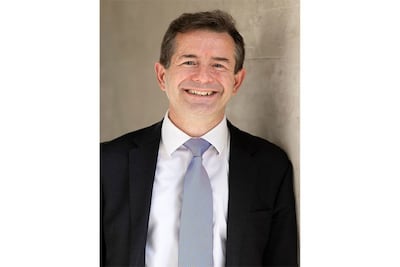Britain’s Defence Intelligence chief has warned that western militaries will struggle to prevent advanced weapons being used by extremists in future wars.
Adrian Bird is understood to have been referring to killer drones that are being rapidly developed and widely used in Ukraine, having a deadly effect if wielded by terrorists.
Commercially available technology could provide future adversaries “with increasing access to cheaper, lighter and stealthier capabilities,” he told an audience at the Rusi think tank in London.
There is a fear that terrorists could develop hundreds of kamikaze drones used in swarm attacks on civilian or military targets. “When deployed in greater mass they will present credible threats,” said the chief of Defence Intelligence.
Ukraine’s army technicians have developed thousands of basic drones that can carry an artillery shell and drop it on a precise location knocking out tanks or killing infantry.
“The continued development of advanced weapons systems will challenge us and unlike the previous decades, we cannot expect advanced militaries to maintain a monopoly on the use of these advanced systems,” said Mr Bird.
Defence Intelligence, run by the UK’s Ministry of Defence, employs more than 4,000 staff running covert operations as well as gathering and analysing information that it shares with other security agencies including MI6.
It has come to greater prominence since Russia invaded Ukraine by rapidly declassifying secret material and publishing it on widely read daily Tweets.
Its boss warned on Tuesday that the coming years will see “shared values” between countries become less important as competition intensifies for supplies of energy, food and raw materials.
“That's making relationships increasingly transactional,” said the former head of GCHQ eavesdropping headquarters. “Greater instability will increase flows of migration, fuelling humanitarian and public health crises and in all this competition risks turning into confrontation.”

Future “violent extremist organisations” will be moulded by those issues if governments failed to meet their population’s requirements, especially for food. “Non-state actors will gain in following and in capability, potentially threatening UK forces and our interests around the globe,” he said.
In a speech titled Reappraising UK Defence Intelligence Priorities, Mr Bird argued that the globe was quickly moving from the “national security challenge of global terrorism” to a “more contested world…against the backdrop of economic volatility, continued rapid technological advances and the global challenges of sustainability and climate”.
He assessed that Russia would remain Britain’s main threat until 2030 when China with its economic power aligned with its growing military, space and cyber strength will take over.
“Within this world of increasing competition, we assess that China will present the greatest challenge to the UK’s overseas interests and economic security in 2030,” he said.
He also argued that new technologies such as Artificial Intelligence will transform people’s news consumption influencing how governments and citizens “understand, support and resource future conflicts”.
“The trend will continue, as the digital world provides new opportunities to confuse, mislead and deceive public perception, potentially undermining the state's will and ability.”
Britain could no longer assume it had an “overriding technological advantage in future conflicts”, he concluded.


